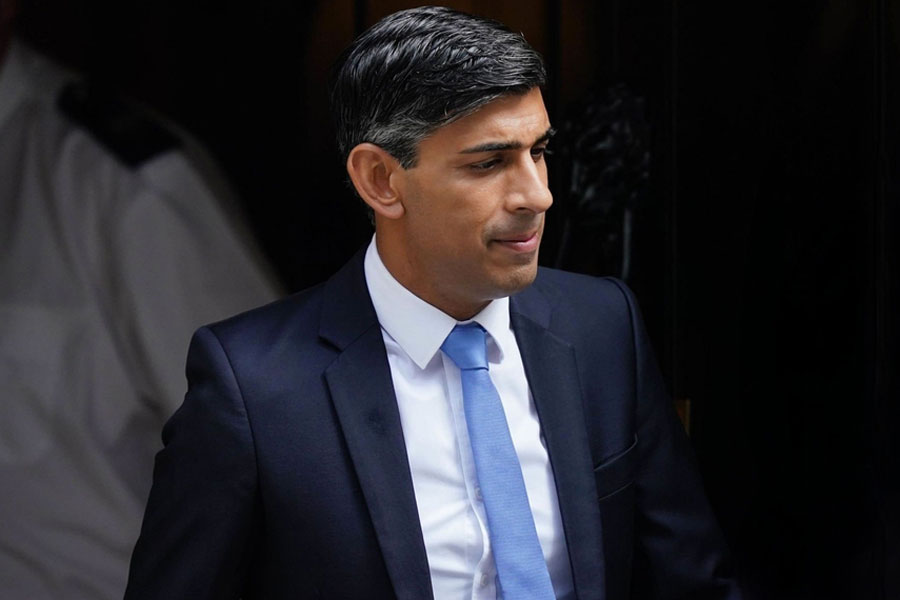The Conservatives have dominated British politics for 14 years, holding onto power through crisis after crisis, including some of their own making.
Now, as unhappy Britons prepare to go to the polls, the Conservatives are facing the prospect of irrelevance. Polls suggest they could secure their lowest share of seats in Parliament in perhaps a century.
After a turbulent five years of government, their base has fractured.
Some are going Left, with the party polling around 20 percentage points behind Labour. Others are heeding the lure of the hard Right, with a third of those Britons who voted Conservative last time now saying they will support the anti-immigration Reform party, led by Nigel Farage.
Polls suggest the election results could be catastrophic for the Conservatives. While polling often narrows as an election gets closer, Conservative fortunes have shown little sign of improving.
Here are some key reasons:
Country is worse off
Many voters say they feel the Conservative Party has left Britain in a worse state than before it came to power.
Promising to finalise Brexit, which took Britain out of the EU, was a big vote winner for the Conservatives in the last election. Britons have other concerns now. This time, they say, the biggest issues are the economy and health care, followed by immigration. And voters think Labour is better prepared to handle all three, according to YouGov.
Prime Minister Rishi Sunak’s predecessor, Liz Truss, set off an economic crisis after she announced plans for tax cuts, deregulation and borrowing.
Seven and a half million people are waiting for elective care from the National Health Service, 5 million more than when the Conservatives took power in 2010. And despite Conservative pledges to reduce immigration, net migration reached a high in 2023.
Voters’ exodus
More than half the people who voted for the Conservatives in the last election tell pollsters that they now plan to vote for a different party.
Those voters who say they will abandon the Conservatives include some of the party’s most reliable supporters.
Over the past few decades, age has replaced class as the main predictor of political support in Britain, with Conservatives winning more older voters. In the last election, the age at which someone was more likely to vote Conservative than Labour was roughly 40 or older.
Now, polling suggests that Conservatives are only ahead in one age group: people older than 65.
Conservative candidates could be wiped out in Britain’s youngest areas, according to the latest polling from YouGov. And Labour seems poised to make a significant dent among older constituencies too, with the center-left Liberal Democrats eroding Conservative control of seats across the age groups. In the last election, some of the most deprived areas of the country — based on factors like income, housing and health — voted for the Conservative Party for the first time.
Polls suggest this approach is costing Labour support among 18- to 24-year-olds as they gravitate to smaller parties, including the Liberal Democrats and the Greens. The seat of Bristol Central — a city with a large amount of young, educated voters in southwest England — could be won by the Green party for the first time.
Losing seats
After a disastrous performance in the last election, Labour needs to win an extra 120 seats in Parliament compared with the last election to gain power. It’s an extraordinary number, and a daunting task. Starmer, the party’s leader, is also unpopular, surveys show, although his standing in polling has improved throughout the campaign.
But the latest polling suggests Labour could win seats across the country and transform Britain’s electoral map.
One key test for Labour will be whether it can win back post-industrial heartlands in the Midlands and north of England, traditionally known as the “red wall”.
Many of these seats turned over to Conservative candidates for the first time in 2019 after voters there backed Brexit.
The geography of each party’s voter base is crucial in this election.
Brexit voters
One of the biggest unknowns is how well the hard-Right Reform Party will perform.
Nigel Farage, who shook up the campaign in early June when he took over as Reform’s leader, hopes to capitalise on discontent among Conservative voters and rising concern about immigration to win seats in Parliament.
In the longer term, Farage said he hopes to be a candidate for prime minister by 2029, when the following election would be scheduled.
New York Times News Service











